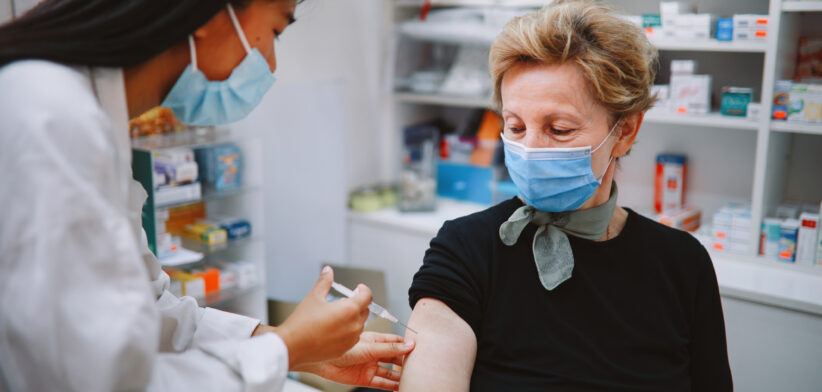Suffering side effects after the COVID vaccine indicates you are experiencing a robust immune response that is likely to lessen the chances of infection.
Tiredness, muscle and joint pain, chills, headache, fever, nausea, injection site symptoms, and feeling generally unwell may be evidence of a supercharged defence.
The results are from a study, based on 363 people who had the Pfizer-BioNTech or Moderna mRNA vaccines, and conducted by the UC San Francisco.
Those with seven or more symptoms had nearly double the antibody levels of those who did not have symptoms. Six months later, the researchers found that those whose skin temperature increased by one degree Celsius immediately after the second dose, had three times more antibody levels than those whose temperature did not increase.
However, the absence of side effects did not mean the vaccine was ineffective.
UCSF Department of Psychiatry and Behavioural Sciences and the Weill Institute for Neurosciences post-doctoral researcher and first author Ethan Dutcher said that generally they found the higher the number of side effects, the higher the level of antibodies.
“But this wasn’t a hard rule: some people without side effects had better antibodies than some people with side effects,” Dr Dutcher told Science Daily.
As the virus has evolved, many people continue to underestimate its potential impact. In Brisbane, only about 11 per cent of the population have been vaccinated against COVID in the past six months according to the latest government statistics.
UCSF Deparment of Psychiatry and Behavioural Sciences vice chair and co-senior author Elissa Epel said the toll of COVID was still high – including sickness, lost work, lasting fatigue and long COVID.
“While the symptoms from vaccination can be unpleasant, it’s important to remember that they don’t come close to the disease’s potential complications,” Dr Epel said.
The findings were first published in the Annals of Internal Medicine.








